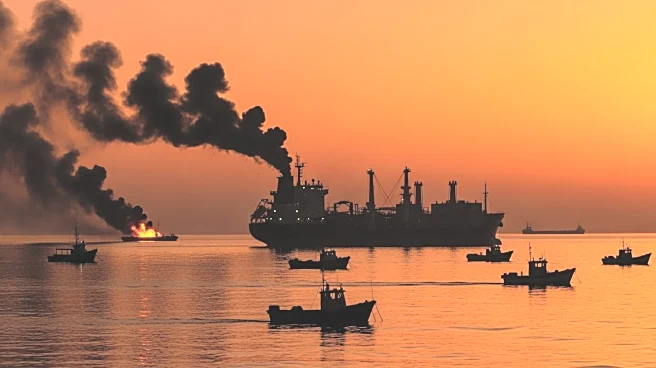What's Happening?
A Russian attack on Ukrainian ports along the Black Sea and Danube has resulted in a fire aboard a Turkish-flagged LPG carrier, Orinda, and damage to several vessels. The attack targeted energy infrastructure, leading to concerns about the safety of the gas
carrier and prompting evacuations in nearby Romanian villages. Ukrainian officials report that the vessel's gas pumping equipment caught fire, but the crew was safely evacuated. The attack is part of a broader escalation in strikes on energy facilities by both Russia and Ukraine, with significant impacts on civilian and port operations.
Why It's Important?
The attack highlights the elevated risks faced by vessels near energy infrastructure in conflict zones. The damage to port facilities and vessels could disrupt maritime trade and logistics, affecting regional economies and global supply chains. The incident underscores the vulnerability of critical infrastructure in warfare and the potential for collateral damage. The safety concerns for civilians and the environment emphasize the need for enhanced security measures and international cooperation to mitigate risks.
What's Next?
Security consultants warn of increased risks for vessels near energy infrastructure, suggesting potential changes in maritime operations and insurance policies. Ukraine may seek further international support to bolster its defenses and protect critical infrastructure. The ongoing conflict could lead to heightened tensions and further military engagements, impacting regional stability and international relations.
Beyond the Headlines
The attack raises questions about the legal and ethical implications of targeting civilian infrastructure in warfare. The incident may prompt discussions on international maritime security standards and the protection of non-combatant entities in conflict zones. The broader impact on global energy markets and supply chains could lead to shifts in trade policies and economic strategies.

















